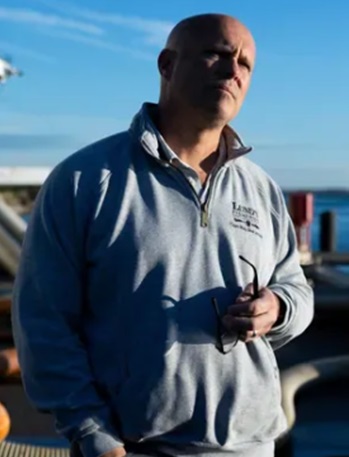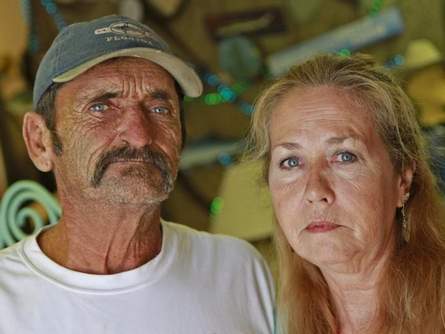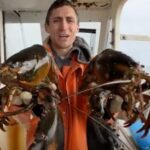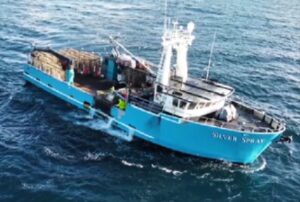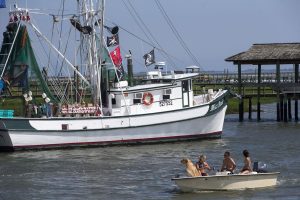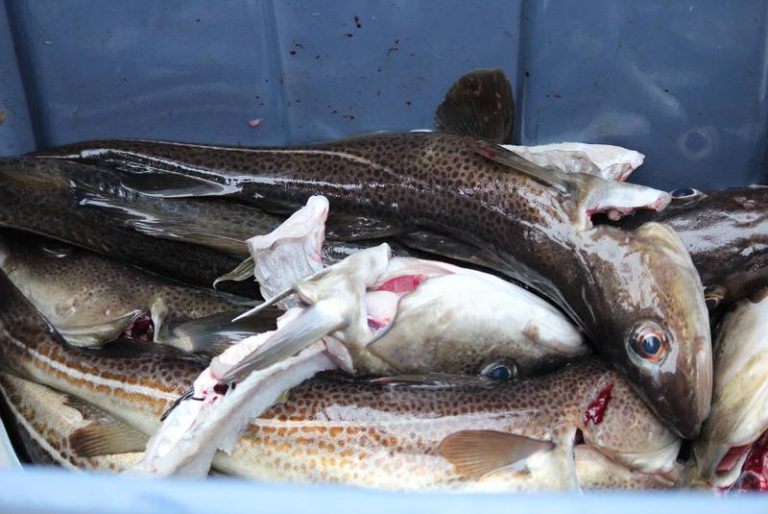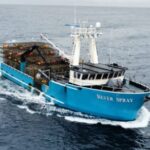Tag Archives: U.S. Supreme Court
Fishing industry asks Supreme Court to hear case against Vineyard Wind
 A national fishing industry group and conservation think tank have petitioned the U.S. Supreme Court to take up their lawsuits challenging the approval of the Vineyard Wind project, which has been under construction since 2023. The lobbying group, Responsible Offshore Development Alliance (RODA), sued the lead government regulator of offshore wind in early 2022, alleging the agency violated several acts, including those to protect existing ocean users and endangered species. At the crux of RODA’s appeal to the Supreme Court is the language of the Outer Continental Shelf Lands Act, and particularly, how the federal government interpreted it. more, >>CLICK TO READ<< 06:52
A national fishing industry group and conservation think tank have petitioned the U.S. Supreme Court to take up their lawsuits challenging the approval of the Vineyard Wind project, which has been under construction since 2023. The lobbying group, Responsible Offshore Development Alliance (RODA), sued the lead government regulator of offshore wind in early 2022, alleging the agency violated several acts, including those to protect existing ocean users and endangered species. At the crux of RODA’s appeal to the Supreme Court is the language of the Outer Continental Shelf Lands Act, and particularly, how the federal government interpreted it. more, >>CLICK TO READ<< 06:52
Maryland Fishing Groups Take Striped Bass Restrictions Fight to Supreme Court
 A coalition of Maryland fishing associations and charter boat operators have escalated their legal battle against new striped bass fishing restrictions, filing an emergency petition with the U.S. Supreme Court seeking to block the regulations. The Delmarva Fisheries Association (DFA) and the Maryland Charter Boat Association, along with two individual commercial fishermen, argue that the Atlantic States Marine Fisheries Commission’s (the Commission) recent measures impose “drastic, unwarranted, and illegal limitations” on striped bass fishing in the Chesapeake Bay and along the Atlantic coast. The petition, filed this week, claims the restrictions violate the U.S. Constitution and could jeopardize the livelihoods of many small businesses. The case follows months of legal disputes in lower courts, where the plaintiffs sought a preliminary injunction to halt the Commission’s 2024 striped bass management plan, known as Addendum II. more, >>CLICK TO READ<< 07:10
A coalition of Maryland fishing associations and charter boat operators have escalated their legal battle against new striped bass fishing restrictions, filing an emergency petition with the U.S. Supreme Court seeking to block the regulations. The Delmarva Fisheries Association (DFA) and the Maryland Charter Boat Association, along with two individual commercial fishermen, argue that the Atlantic States Marine Fisheries Commission’s (the Commission) recent measures impose “drastic, unwarranted, and illegal limitations” on striped bass fishing in the Chesapeake Bay and along the Atlantic coast. The petition, filed this week, claims the restrictions violate the U.S. Constitution and could jeopardize the livelihoods of many small businesses. The case follows months of legal disputes in lower courts, where the plaintiffs sought a preliminary injunction to halt the Commission’s 2024 striped bass management plan, known as Addendum II. more, >>CLICK TO READ<< 07:10
Three NJ herring fishermen made history at the Supreme Court, but their fight isn’t over
 Three herring fishermen from Cape May fought the law all the way to the U.S. Supreme Court and won. In doing so, the three men overturned the 40-year-old U.S. Supreme Court, thus making it easier for them and others to challenge federal regulations in court. But their battle is not over. The fishermen are challenging what they say is an unlawful requirement that forces them to surrender 20% of their earnings to pay at-sea monitors, who gather information that is used to regulate their industry. That worked out to as much as $700 a day, which is more pay than the crews take home sometimes. The requirement was imposed on them by an executive branch agency — in this case the U.S. Dept. of Commerce, which oversees the National Oceanic and Atmospheric Administration, which in turn regulates the nation’s fisheries. The at-sea monitors were never approved by Congress, but due to the so-called Chevron deference, the fishermen were handicapped to fight the rule, because the courts always deferred to the regulatory agencies. more, >>CLICK TO READ<< 06:50
Three herring fishermen from Cape May fought the law all the way to the U.S. Supreme Court and won. In doing so, the three men overturned the 40-year-old U.S. Supreme Court, thus making it easier for them and others to challenge federal regulations in court. But their battle is not over. The fishermen are challenging what they say is an unlawful requirement that forces them to surrender 20% of their earnings to pay at-sea monitors, who gather information that is used to regulate their industry. That worked out to as much as $700 a day, which is more pay than the crews take home sometimes. The requirement was imposed on them by an executive branch agency — in this case the U.S. Dept. of Commerce, which oversees the National Oceanic and Atmospheric Administration, which in turn regulates the nation’s fisheries. The at-sea monitors were never approved by Congress, but due to the so-called Chevron deference, the fishermen were handicapped to fight the rule, because the courts always deferred to the regulatory agencies. more, >>CLICK TO READ<< 06:50
Nantucket Group Fighting Vineyard Wind Will Take Case To U.S. Supreme Court
 After its arguments against the Vineyard Wind project were rejected by a federal judge in April, the Nantucket group ACK 4 Whales will attempt to take its case to the U.S. Supreme Court. “There are no do-overs when the last whale is killed off,” said Val Oliver, president of ACK 4 Whales. “We will be seeking a writ of certiorari to the Supreme Court to ask for the reversal of the First Circuit’s legal errors made in our case,” Oliver added. “We believe this is the first cert. petition being filed in the wake of the Supreme Court’s decision in Loper Bright to challenge offshore wind development..” After its arguments against the Vineyard Wind project were rejected by a federal judge in April, the Nantucket group ACK 4 Whales will attempt to take its case to the U.S. Supreme Court. more. >>CLICK TO READ<< 13:45
After its arguments against the Vineyard Wind project were rejected by a federal judge in April, the Nantucket group ACK 4 Whales will attempt to take its case to the U.S. Supreme Court. “There are no do-overs when the last whale is killed off,” said Val Oliver, president of ACK 4 Whales. “We will be seeking a writ of certiorari to the Supreme Court to ask for the reversal of the First Circuit’s legal errors made in our case,” Oliver added. “We believe this is the first cert. petition being filed in the wake of the Supreme Court’s decision in Loper Bright to challenge offshore wind development..” After its arguments against the Vineyard Wind project were rejected by a federal judge in April, the Nantucket group ACK 4 Whales will attempt to take its case to the U.S. Supreme Court. more. >>CLICK TO READ<< 13:45
Fishermen Who Were Forced to Pay $700 Per Day to Government-Mandated Observers on Their Boats Get Big News from SCOTUS
 Members of the 18th-century British Parliament, unelected by American colonists, tried to take money from those colonists without their consent. Hence, the American Revolution ensued. On Friday, the U.S. Supreme Court overturned a 40-year-old ruling that had allowed unelected federal regulators, acting the part of the British Parliament, to commit such travesties of justice as requiring fishermen to pay for government-mandated regulators on their boats — a requirement that, according to CBS, could cost the fishermen more than $700 per day. The true magnitude of Friday’s ruling, however, involved far more than fishing boats. In fact, it struck at the heart of American progressivism by eviscerating the insidious claim that federal “experts” know best. In so doing, it took one small-but-crucial step towards dismantling the permanent federal state that actually governs in Washington, D.C. more, >>CLICK TO READ<< 11:18
Members of the 18th-century British Parliament, unelected by American colonists, tried to take money from those colonists without their consent. Hence, the American Revolution ensued. On Friday, the U.S. Supreme Court overturned a 40-year-old ruling that had allowed unelected federal regulators, acting the part of the British Parliament, to commit such travesties of justice as requiring fishermen to pay for government-mandated regulators on their boats — a requirement that, according to CBS, could cost the fishermen more than $700 per day. The true magnitude of Friday’s ruling, however, involved far more than fishing boats. In fact, it struck at the heart of American progressivism by eviscerating the insidious claim that federal “experts” know best. In so doing, it took one small-but-crucial step towards dismantling the permanent federal state that actually governs in Washington, D.C. more, >>CLICK TO READ<< 11:18
The One Weird Trick Trump Could Use to Get Away with January 6th
Far from shore after a week at sea, a Florida fisherman named John Yates was buste d by wildlife officials for catching grouper that were too small. But before returning to the dock a day later, Yates chucked the contraband fish overboard rather than hand them over to authorities. So, the federal government charged Yates with destroying evidence under a law passed in response to the energy giant Enron and its shady financial practices. Called the Sarbanes-Oxley Act, the law was intended to crack down on financial fraud and evidence destruction. Yates argued that the law governed document shredding and fish aren’t documents. Eight years later, the Supreme Court sided with the fisherman in a precedent-setting 2015 decision that limited prosecutions. Today, that dump of grouper could wind up getting Donald Trump off the hook for January 6th. more, >>click to read<< 10:47
d by wildlife officials for catching grouper that were too small. But before returning to the dock a day later, Yates chucked the contraband fish overboard rather than hand them over to authorities. So, the federal government charged Yates with destroying evidence under a law passed in response to the energy giant Enron and its shady financial practices. Called the Sarbanes-Oxley Act, the law was intended to crack down on financial fraud and evidence destruction. Yates argued that the law governed document shredding and fish aren’t documents. Eight years later, the Supreme Court sided with the fisherman in a precedent-setting 2015 decision that limited prosecutions. Today, that dump of grouper could wind up getting Donald Trump off the hook for January 6th. more, >>click to read<< 10:47
Cape May fishermen at center of major U.S. Supreme Court case
On Wednesday, the justices heard testimony in Loper Bright Enterprises v. Raimondo. The justices are deciding whether to uphold or overrule the four-decades old Chevron v. Natural Resources Defense Council decision. The justices heard three-and-a-half hours of oral argument this week. Multiple media outlets reported the justices asked questions indicating that the Chevron doctrine is unlikely to remain fully intact. The fishermen are challenging the National Marine Fisheries Service for requiring the herring industry to take on the cost of paying observers. Who is supporting the fisherman and why? The fishermen are represented by the Cause of Action Institute and New Civil Liberties Alliance. Groups such as the Cato Institute, Christian Employers Alliance, and members of Congress such as Sen. Ted Cruz and Speaker of the House, Mike Johnson, have filed briefs in support of the fishermen. more, >>click to read<< 12:15
How the Boldt decision 50 years ago remade Pacific Northwest fishing
 Louie Ungaro waited out the turn of the tide, when chum salmon — he hoped — would hit his net. Fishing here is his tradition, a practice and a way of life as old as his people, the Muckleshoot Indian Tribe.“Elliott Bay ain’t going nowhere, and neither are we,” said Ungaro, a member of the tribe’s council and lifelong hunter and fisher. Yet it took violent protests and a decision appealed all the way to the U.S. Supreme Court to affirm their right to fish, explicitly stated in treaties signed by their ancestors nearly 170 years ago as settlers colonized the Pacific Northwest. The decision handed down by U.S. District Court Judge George Boldt 50 years ago next month was the result of sacrifices made by Native fishers and their families jailed and beaten while defending these rights. And yet now another threat looms over all they fought for: scarcity of the fish themselves. Photos, more, >>click to read< 08:53
Louie Ungaro waited out the turn of the tide, when chum salmon — he hoped — would hit his net. Fishing here is his tradition, a practice and a way of life as old as his people, the Muckleshoot Indian Tribe.“Elliott Bay ain’t going nowhere, and neither are we,” said Ungaro, a member of the tribe’s council and lifelong hunter and fisher. Yet it took violent protests and a decision appealed all the way to the U.S. Supreme Court to affirm their right to fish, explicitly stated in treaties signed by their ancestors nearly 170 years ago as settlers colonized the Pacific Northwest. The decision handed down by U.S. District Court Judge George Boldt 50 years ago next month was the result of sacrifices made by Native fishers and their families jailed and beaten while defending these rights. And yet now another threat looms over all they fought for: scarcity of the fish themselves. Photos, more, >>click to read< 08:53
Kelly Bullis: Fishermen might hurt the IRS
 Now here is a whopper of a fishing story! The current session of the U.S. Supreme Court has an interesting case on the docket. If they rule in favor of the plaintiffs, it could end up changing a long-standing rule from a prior Supreme Court ruling of almost 40 years ago which underpins the ability of the IRS to do its job. The case is about regulation of fishing boats. And the old Supreme Court doctrine at risk is called the “Chevron Deference Doctrine.” The “Chevron Deference Doctrine” was a coined name that came from a famous landmark case “Chevron USA Inc vs. Natural Resources Defense Council Inc” back in 1984. The Supreme Court set forth a legal test as to when a court should defer to an agency’s answer or interpretation, holding that such judicial deference is appropriate where the agency’s answer was not unreasonable, so long as Congress had not spoken directly to the precise issue at question. >>click to read<< 13:38
Now here is a whopper of a fishing story! The current session of the U.S. Supreme Court has an interesting case on the docket. If they rule in favor of the plaintiffs, it could end up changing a long-standing rule from a prior Supreme Court ruling of almost 40 years ago which underpins the ability of the IRS to do its job. The case is about regulation of fishing boats. And the old Supreme Court doctrine at risk is called the “Chevron Deference Doctrine.” The “Chevron Deference Doctrine” was a coined name that came from a famous landmark case “Chevron USA Inc vs. Natural Resources Defense Council Inc” back in 1984. The Supreme Court set forth a legal test as to when a court should defer to an agency’s answer or interpretation, holding that such judicial deference is appropriate where the agency’s answer was not unreasonable, so long as Congress had not spoken directly to the precise issue at question. >>click to read<< 13:38

Big ripples – The Pebble Mine saga continues
In a move sure to anger Lower 48 environmentalists and much of Alaska, Gov. Mike Dunleavy has decided to sue the Environmental Protection Agency (EPA) over its blocking of a proposed Pebble Mine in the Iliamna Lake drainage of Southwest Alaska. And though the lawsuit is sure to upset many Alaska, it might be the last, best chance the state will ever get to secure the rights to self-government that Alaskans thought were granted at statehood in 1959. A variety of Alaska legal experts, both left and right, this week agreed the state’s appeal to the U.S. Supreme Court is a crapshoot. One called it a classic “hail Mary.” Lots of links,>click to read< 13:01
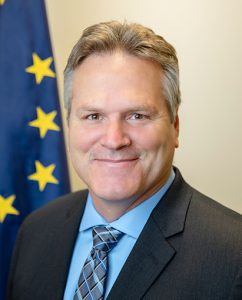
Alaska leaders petition the US Supreme Court for reversal of EPA ban on Pebble Mine
The Dunleavy administration on Wednesday asked the U.S. Supreme Court to overturn the Environmental Protection Agency’s decision to block the controversial Pebble copper and gold mine. Gov. Mike Dunleavy, in the statement, echoed arguments made in the brief assert the EPA action effectively confiscates state property and clashes with the Alaska constitution’s mandates. “Our constitution is clear: Alaska is responsible for utilizing, developing, and conserving all of the State’s natural resources for the maximum benefit of its people,” Dunleavy said in the statement. “Bureaucrats in Washington D.C. are exercising unbridled and unlawful power to choke off any further discussion on this important decision affecting so many Alaskans.” >click to read< 18:09
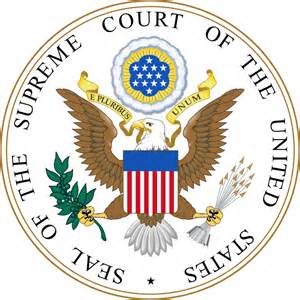
U.S. Supreme Court Rules Against Florida In Water Fight
After years of legal battling, the U.S. Supreme Court on Thursday unanimously rejected a lawsuit in which Florida argued Georgia has used too much water in a river system shared by the states. The 12-page ruling dismissed the lawsuit that Florida filed in 2013 after the oyster fishery collapsed in Franklin County’s Apalachicola Bay. Florida contended that Georgia drew too much water in the Apalachicola-Chattahoochee-Flint river system, which starts in northern Georgia and ends in Apalachicola Bay, and that more water should be directed to Florida. >click to read< >Supreme Court Ruling< 17:15
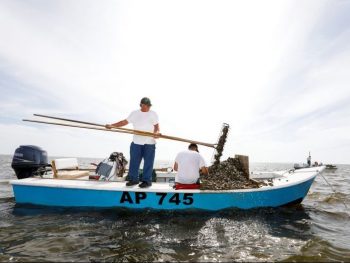
Water War: Florida and Georgia battle over water, as panhandle oystermen struggle to survive
Michael Dasher lowered a long pair of tongs into the water,,, His 53-year-old calloused hands grasped not just the 12-foot-long (3.7-m-long) tool but a way of life that Florida panhandle oystermen say is dying: Last year, they hauled in 16,000 pounds (7,257 kg) of oysters worth $130,000, according to state figures, a fraction of the 2012 catch of 3 million pounds (1.4 million kg) worth $8.8 million. “It’s like dumping sacks of rocks every day, but I don’t know how to do anything else,” said Dasher, who fretted that his 32-year-old son nicknamed “Little Mike,” a fifth-generation oysterman in the family, may also be its last. Their future may be determined by the U.S. Supreme Court, >click to read< 13:08
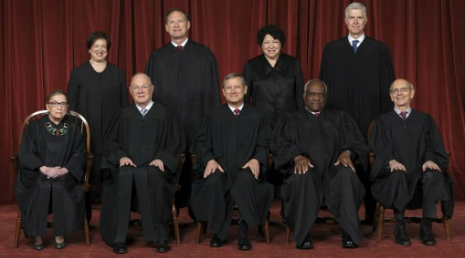
Bureaucrats’ power on trial in California wildlife dispute
When the U.S. Fish and Wildlife Service launched a program in Southern California to reintroduce an otter population, imposing penalties for encroaching on the animal’s habitat, Congress passed a law to protect the fishing industry. Federal officials, however, want to penalize fisherman who accidentally encroach on the otters, and now the U.S. Supreme Court will decide how much power those bureaucrats possess. The case, California Sea Urchin Commission v. U.S. Fish and Wildlife, stems from the Fish and Wildlife Service’s plan in 1986 to widen the territory supporting the otter population. >click to read<09:45
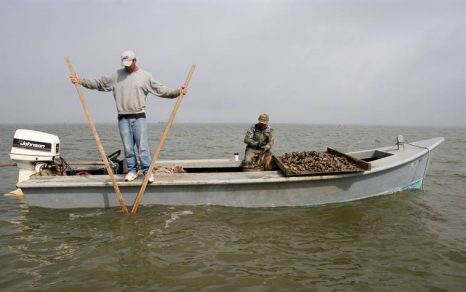
Local leaders encouraged by water wars arguments in U.S. Supreme Court hearing
Florida lawyers fared well in last week’s U.S. Supreme Court hearing on the “water wars” between the state and Georgia, officials who sat through the hearing said. Rep. Neal Dunn, who was among them, said he felt Florida has a real shot of winning the case.,, “Georgia came off some pretty harsh questioning – a lot of harsh interrogatories, and a lot of apparent disbelief on the part of the justices in what they were hearing from Georgia.”,,, Florida says a steady supply of water is the last chance for Apalachicola Bay’s struggling oyster industry and endangered species. >click here to read< 17:45
Groundfishermen: ‘It feels like we’re just forgotten’
 New Hampshire fishermen say temporary federal aid for at-sea monitor coverage is barely holding their industry afloat now that a court battle over the cost appears to have ended. The National Oceanic and Atmospheric Administration is currently covering 60 percent of the cost for third-party at-sea monitors to observe commercial groundfishermen’s compliance with federal regulations. That coverage is projected to end May 1, 2018,,, Jamie Hayward, a commercial fisherman out of Portsmouth, said it will be devastating for fishermen to go from paying 40 percent of those costs to the full bill when NOAA stops assisting.,, will be like we got hit by a bomb,” he said. click here to read the story 16:57
New Hampshire fishermen say temporary federal aid for at-sea monitor coverage is barely holding their industry afloat now that a court battle over the cost appears to have ended. The National Oceanic and Atmospheric Administration is currently covering 60 percent of the cost for third-party at-sea monitors to observe commercial groundfishermen’s compliance with federal regulations. That coverage is projected to end May 1, 2018,,, Jamie Hayward, a commercial fisherman out of Portsmouth, said it will be devastating for fishermen to go from paying 40 percent of those costs to the full bill when NOAA stops assisting.,, will be like we got hit by a bomb,” he said. click here to read the story 16:57
Supreme Court says no to hearing UCIDA case
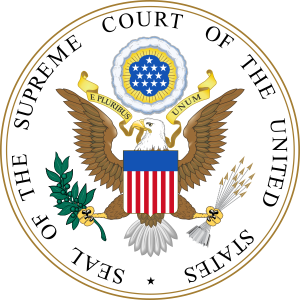 The lawsuit over whether the federal government or the state should manage Cook Inlet’s salmon fisheries won’t get its day in the U.S. Supreme Court after all. Supreme Court justices on Monday denied the state of Alaska’s petition to hear a case in which the Kenai Peninsula-based fishing trade group the United Cook Inlet Drift Association challenged the North Pacific Fishery Management Council’s decision to confer management of the salmon fishery to the state. click here to read the story 08:31
The lawsuit over whether the federal government or the state should manage Cook Inlet’s salmon fisheries won’t get its day in the U.S. Supreme Court after all. Supreme Court justices on Monday denied the state of Alaska’s petition to hear a case in which the Kenai Peninsula-based fishing trade group the United Cook Inlet Drift Association challenged the North Pacific Fishery Management Council’s decision to confer management of the salmon fishery to the state. click here to read the story 08:31
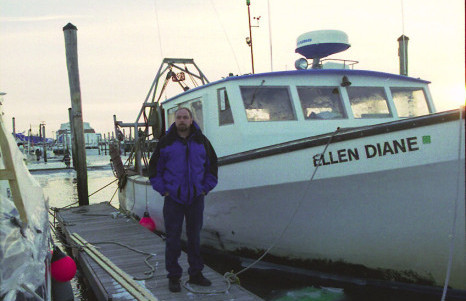
Your View: Even ‘smart’ video monitoring is onerous to fishermen
I would like to make several observations regarding Michael Bonner’s Aug. 21 article, “Delegation supports Rafael’s forfeiture toward electronic monitoring.” First of all, state legislators’ support for utilizing the forfeiture to fund the electronic monitoring (surveillance), presupposes that this form of electronic monitoring will be supported and adopted. It surely does not seem to be the favored choice of monitoring, as far as the groundfish industry is concerned. In fact, they are not in favor of any form of monitoring that has been proposed to date. NOAA fisheries Regional Administrator John Bullard (soon to be retiring) is quoted as saying that he thinks that video monitoring is a major benefit to the industry. I’m not sure who he thinks he’s going to convince with that statement. Surely not the fishing industry. If that were the case, New Hampshire fisherman David Goethel likely would not be requesting that this “benefit” be reviewed by the U.S. Supreme Court, click here to read the op-ed by Jim Kendall 19:04
Deadline soon for feds’ response to fishing monitor petition
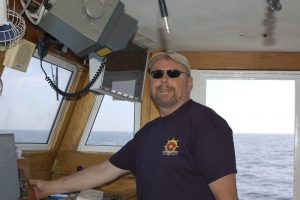 A fishermen’s group says it’s still waiting on the federal government’s response to a petition it filed with the U.S. Supreme Court about the cost of fishing monitors. The government shifted the cost of paying for monitors to fishermen last year, prompting a legal battle. A group of fishermen led by David Goethel of New Hampshire filed a petition seeking a review of the case last month. A spokesman for the fishermen’s attorney says the government has until Monday to respond and has not done so. link 15:32
A fishermen’s group says it’s still waiting on the federal government’s response to a petition it filed with the U.S. Supreme Court about the cost of fishing monitors. The government shifted the cost of paying for monitors to fishermen last year, prompting a legal battle. A group of fishermen led by David Goethel of New Hampshire filed a petition seeking a review of the case last month. A spokesman for the fishermen’s attorney says the government has until Monday to respond and has not done so. link 15:32

Florida-Georgia Water War to be settled in a Maine Courtroom on Monday. Last Chance for the Apalachicola Oyster?
The Flint River, from high atop the bridge on Po Biddy Road, looks nothing like the water-hogging culprit Florida makes it out to be. It’s all rocks with slivers of water barely coursing through. “That’s what paddlers call ‘bony,’ ” said Gordon Rogers, the Flint Riverkeeper. “It should be almost three times as high. And we’re not even in a big-dog drought.” Yet much of Georgia is in a drought — worsening by the day — and the lack of rain, barren streams and dwindling reservoirs buttress the latest “water war” legal battle set to begin Monday in a Maine courtroom. The stakes for Georgia have never been higher. Metro Atlanta’s future rides on the legal opinion of one irascible, no-nonsense Yankee barrister who has warned that neither Georgia nor Florida will be satisfied with his ruling. The U.S. Supreme Court appointed Ralph Lancaster as the “special master” to determine the validity of Florida’s 2013 lawsuit against Georgia and its alleged overconsumption of the Chattahoochee and Flint rivers. Whiskey’s for drinking, as the adage goes, but water’s worth fighting over. Read the story here 13:33
Florida and Georgia governors hold private meeting on water
 The meeting comes as the U.S. Supreme Court prepares to hear a challenge from Florida seeking to limit Georgia’s withdrawals from the Chattahoochee River. Deal requested the meeting with Scott. Florida argues that Georgia is guzzling more than its share of water to slake the thirst of growing Atlanta at the expense of the Apalachicola Bay oyster fishery, which relies on fresh river water mixing with the salty sea to thrive. Read the rest here 14:21
The meeting comes as the U.S. Supreme Court prepares to hear a challenge from Florida seeking to limit Georgia’s withdrawals from the Chattahoochee River. Deal requested the meeting with Scott. Florida argues that Georgia is guzzling more than its share of water to slake the thirst of growing Atlanta at the expense of the Apalachicola Bay oyster fishery, which relies on fresh river water mixing with the salty sea to thrive. Read the rest here 14:21
Lyons: Cortez fish-tossing case a whopper of a tale
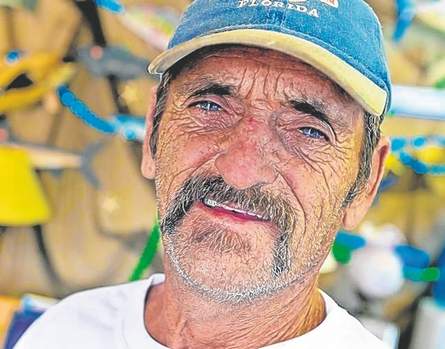 There are “Gilligan’s Island” plots less far-fetched than the twists and turns it took to navigate a local commercial fishing boat skipper’s case to the U.S. Supreme Court. Judging by their questions, some of the high court’s justices think it fishy that federal prosecutors went after a fishing boat Captain John Yates of Cortez as if he had been hijacking ships like a Somali pirate. Read the rest here 08:37
There are “Gilligan’s Island” plots less far-fetched than the twists and turns it took to navigate a local commercial fishing boat skipper’s case to the U.S. Supreme Court. Judging by their questions, some of the high court’s justices think it fishy that federal prosecutors went after a fishing boat Captain John Yates of Cortez as if he had been hijacking ships like a Somali pirate. Read the rest here 08:37
Former Cortez fisherman shares his side of case that has reached U.S. Supreme Court
John Yates remembers the day his life as a commercial fisherman was forever changed. The 62-year-old sat inside his Cortez furnishing store Off the Hook on Wednesday and recalled that day in October 2007. As he shared his story, Yates’ wife Sandy — who has a background in law — and their daughter Jennifer Miller were more than 900 miles away in Washington, D.C. for his case in front of the United States Supreme Court. Read the rest here 11:16
Yates v. United States to question over-criminalization Make a comment here
Court won’t stop BP oil spill claims payments
 NEW ORLEANS (AP) — BP PLC must resume paying claims while it asks the U.S. Supreme Court to review its settlement with businesses over the 2010 Gulf of Mexico oil spill, a federal appeals court panel said Wednesday. Read more here 16:08
NEW ORLEANS (AP) — BP PLC must resume paying claims while it asks the U.S. Supreme Court to review its settlement with businesses over the 2010 Gulf of Mexico oil spill, a federal appeals court panel said Wednesday. Read more here 16:08
Georgia asks the U.S. Supreme Court to stay out of the latest legal battle in its 24-year fight over water rights with neighboring Florida.

 Georgia filed its response last week to Florida’s request for the high court to intervene in deciding how they share water that flows across the state line where the Chattahoochee and Flint rivers merge to form the Apalachicola River. Florida officials said in an October complaint their state needs immediate relief as growing water consumption by metro Atlanta threatens Florida’s oyster fishery. “Florida has brought its case against the wrong party, in the wrong court, and at the wrong time,” the Georgia lawyers wrote in their legal response. Read more@heraldtribune.com 16:45
Georgia filed its response last week to Florida’s request for the high court to intervene in deciding how they share water that flows across the state line where the Chattahoochee and Flint rivers merge to form the Apalachicola River. Florida officials said in an October complaint their state needs immediate relief as growing water consumption by metro Atlanta threatens Florida’s oyster fishery. “Florida has brought its case against the wrong party, in the wrong court, and at the wrong time,” the Georgia lawyers wrote in their legal response. Read more@heraldtribune.com 16:45







